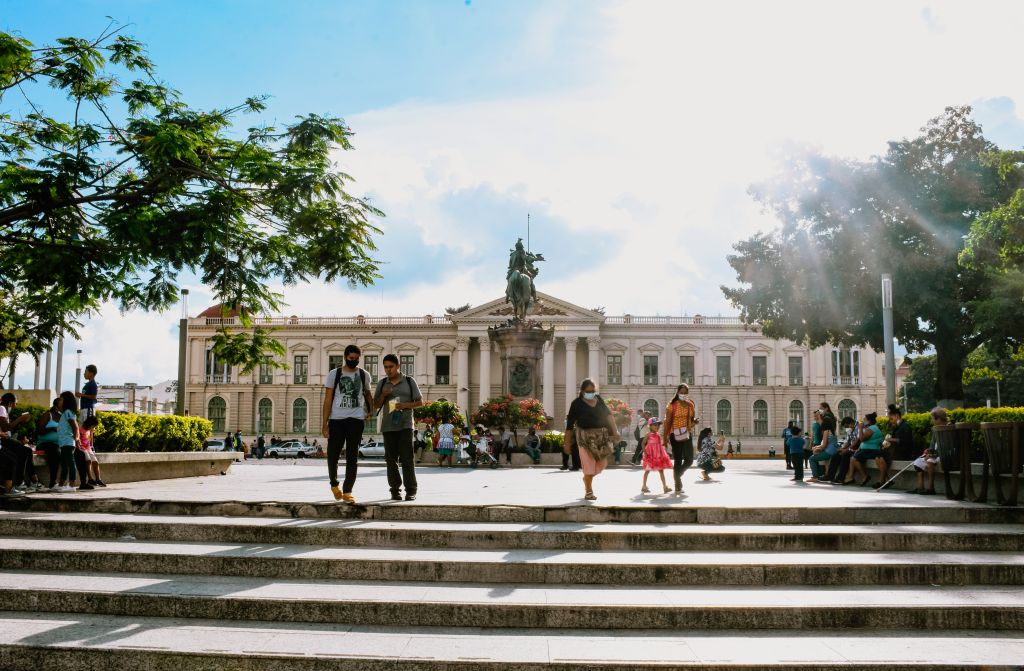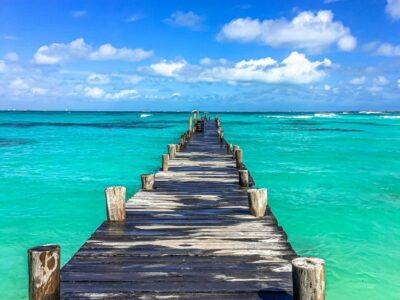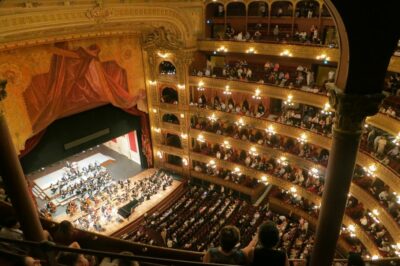How the elections in El Salvador could influence politics in Latin America
Nayib Bukele was re-elected President of El Salvador with a record result. His hard-line policy against crime and the rule of law is likely to be emulated in the region.
by Alexander Busch, Latin America correspondent for Handelsblatt and Neue Zürcher Zeitung
As expected, the incumbent Nayib Bukele won a clear landslide victory in the elections in El Salvador: 58 of the 60 seats in Congress will belong to his “New Ideas” party. Over 80 percent of voters are likely to have voted for him.
The official result is still pending. This did not stop Bukele, the “coolest dictator in the world” in his own words, from celebrating his victory.
With a popularity rating of between 80 and 90 percent, the 42-year-old Bukele is by far the most popular president in Latin America. Almost all incumbents in the region can only dream of this. This makes it all the more likely that Bukele’s political strategy will find imitators in Latin America.
With his ultra-repressive anti-crime policy, Bukele was able to turn what was once the most dangerous country into the safest in the region in just two years.
Bukele had almost 100,000 suspected gang members arrested. With around 1100 prisoners per 100,000 inhabitants, El Salvador is now the country with the most prisoners in the world. Around seven percent of all 14 to 29-year-old men are in prison – most of them without a court sentence. Human rights organizations such as Human Rights Watch and Western governments are protesting against the state’s arbitrariness.
However, the population supports his policies – including people whose family members are affected by the state’s arbitrary actions. The flow of refugees from El Salvador to the USA has decreased.
This could make Bukule’s policy a blueprint for other governments in Latin America: Because in all countries, the population is suffering from violence and increasing public insecurity.
At the moment, the recently inaugurated President Daniel Noboa in Ecuador seems to want to apply the Bukele repression policy against organized crime and the exploding violence. Argentinian President Javier Milei has also promised a tough stance against crime.
In the upcoming elections in Latin America, candidates with such “mano-duro” programs will certainly become an alternative for voters. Governments in almost all countries are reacting helplessly and without a plan to the growing crime rate.
As a result, politics in Latin America is likely to become more authoritarian. This is because Bukele has largely undermined the rule of law since he appointed henchmen to the judiciary. The electoral judges raised no objection to his re-election, which was not provided for in the constitution. He first intimidated the legislature and with the elections, El Salvador has now become a one-party system. Bukele can now legally do as he pleases.
Experience in Latin America shows that an executive that is unrestricted by the separation of powers almost always leads to authoritarian regimes. Venezuela and Nicaragua are the most obvious examples of this.






